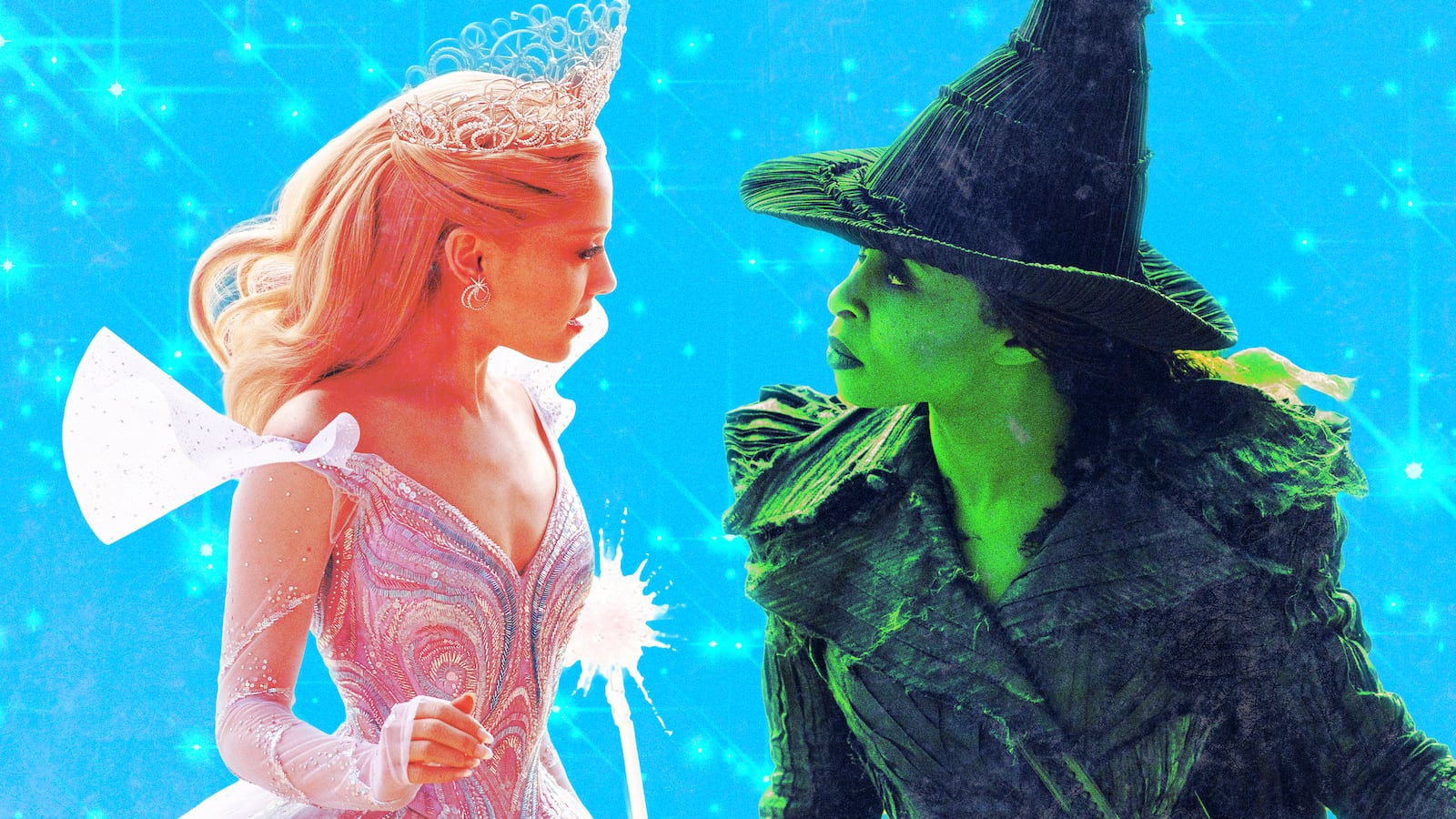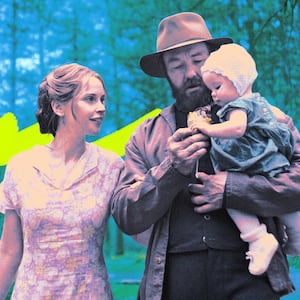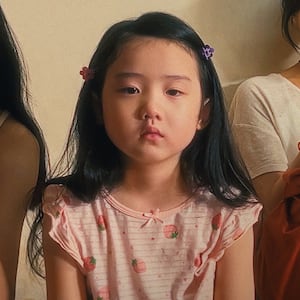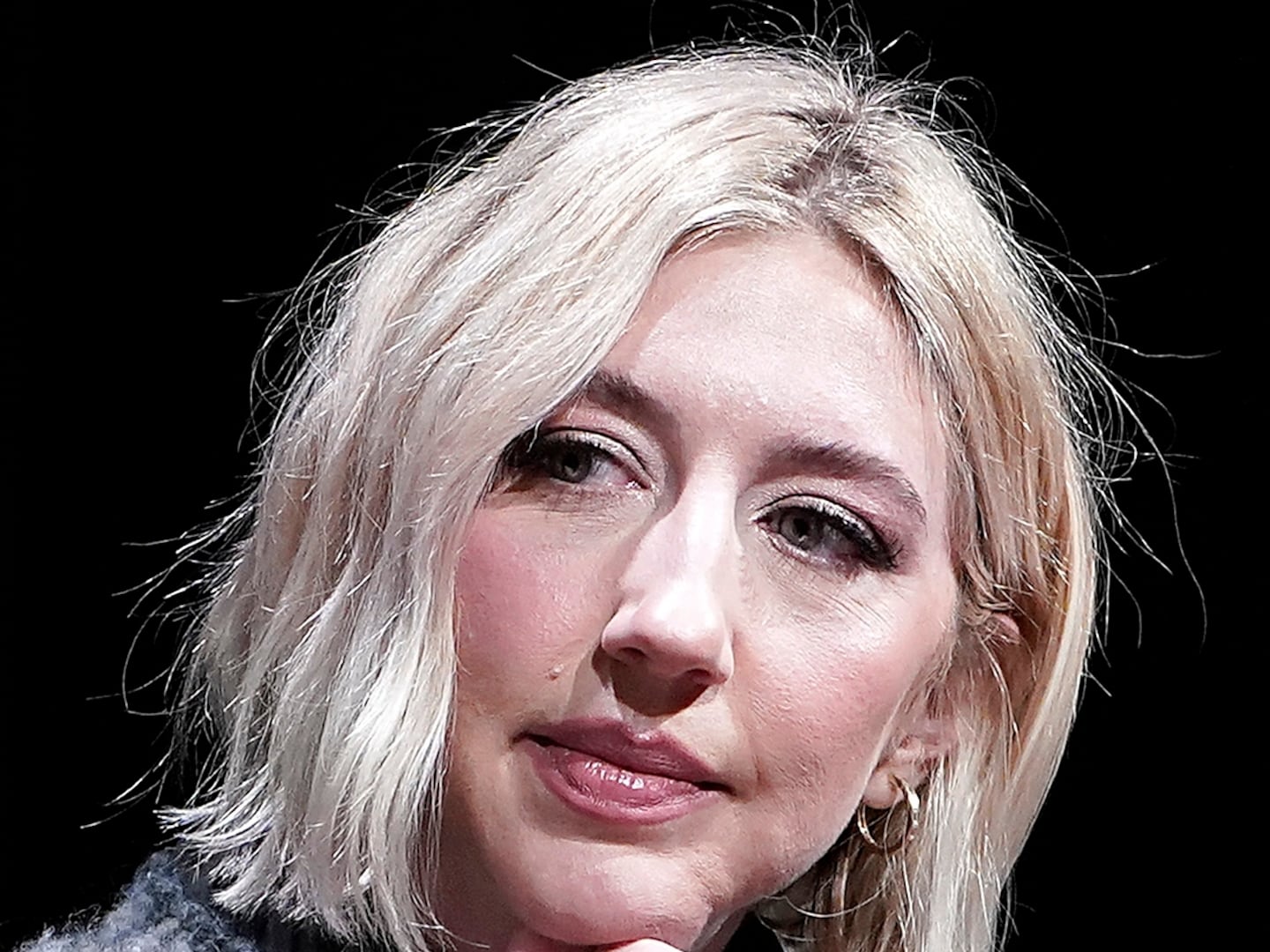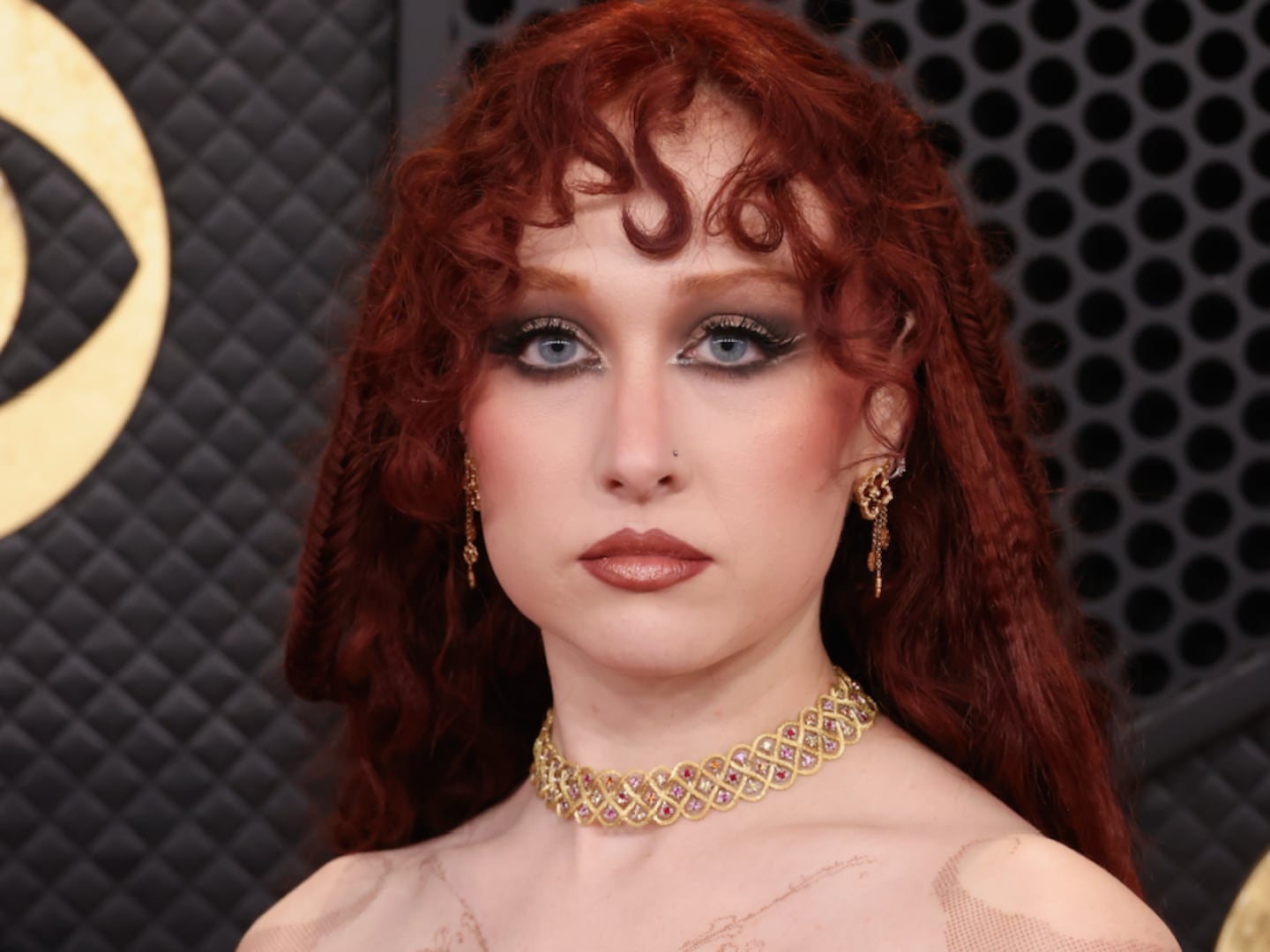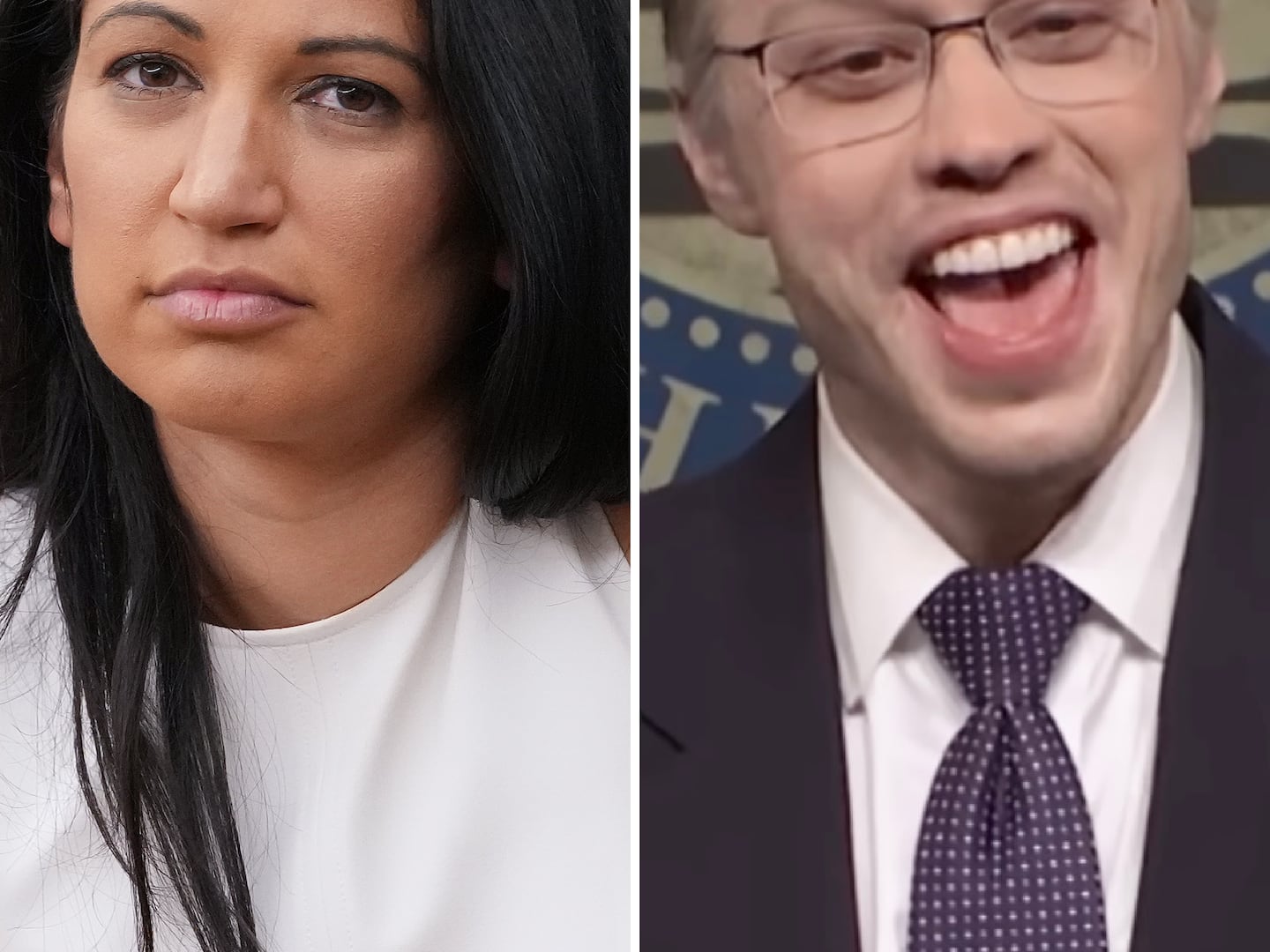Audience members of Wicked: For Good, the conclusion to the two-part adaptation of the hit Broadway musical, are in for an experience.
One, in fact, that’s not too different from that of a certain gingham enthusiast who was whisked away into a whirling, pulse-pounding cyclone of unexpected emotional chaos, and then dramatically plopped into a dazzling, albeit unmooring and unfamiliar land.
Toto, we’re not in Kansas anymore. And fellow Dorothys—fans of the blockbuster, Oscar-nominated previous film—we’re not in the same whimsical wonderland of the first Wicked.
As is the case with the musical’s Act Two, this sequel is markedly darker in tone and subject matter, perhaps jarringly so to those unfamiliar with the theatrical production. (Parents, be warned!)
It’s also the weaker of the two halves, in large part because it lacks the gauntlet of absolute bangers of musical numbers that Act One boasts—as well as much of the frivolity, as the stakes laid out then come to roost now in intense and dramatic fashion.

Still, Wicked: For Good is overall a triumphant follow-up to a first film that set gravity-defying (honk honk) expectations for this conclusion that may have been impossible to meet. The film opens up the subpar act of its source material in inventive and impressive ways, such that its heartrending end is the tears-inducing catharsis fans will crave.
The big numbers, like “No Good Deed,” “As Long as Your Mine,” and “For Good,” deliver with maximalist gusto; sequentially, the belting is stratospheric, the horniness blush-inducing, and the ugly crying inevitable.
And Ariana Grande as Glinda gives the kind of astonishing acting performance—not just her impeccable singing—that will dominate just about every post-screening conversation ticketbuyers have. (Start drafting that Oscar speech, Ari.)
Still, and perhaps unfairly, the film’s most damning criticisms are unavoidable: comparisons to last year’s surprisingly superb first film, and the fact that the second half of Wicked is just, plainly, not as fun.

Seriously. People often forget, or perhaps do not know, that Wicked is a musical about the rise of a fascist regime that is disrupted by a magical vigilante who is upset over the government’s treatment of animals.
It becomes hard not to chuckle a bit about that graveness as the film saunters on.
Yes, we all know the earworm songs, delight in the Wizard of Oz connections, and champion the girlpower of the storytelling—all of the tenets of Wicked that lingered in the mainstream these last decades, and rightfully so. But Wicked: For Good audience members will soon discover that, beyond the nuances of the central relationship between Grande’s Glinda and Cynthia Erivo’s Elphaba, there is something more unexpected that the entire five-hour, two-film endeavor boils down to: animal rights!
How dark this film is compared to the first is striking from the jump.

As the domineering Madame Morrible, Michelle Yeoh opens Wicked: For Good with a morbid rally cry: “She will be eliminated!”
The “she” in this case is Elphaba, who is in exile after Morrible and sham Wizard (Jeff Goldblum) realize they can’t manipulate the powerful green girl into doing their bidding—namely, assist them in setting up a surveillance state and be complicit in the racist and xenophobic (and speciesist?) banishing of talking animals from Oz. In return for daring to stand up against this, the government calls for her murder.
One need not reach to identify the timeliness of this cautionary tale, which hasn’t been shoehorned into this film; it’s all in Gregory Maguire’s 1995 novel that inspired the musical.
When we first see Elphaba in For Good, she’s in Batman mode, flying into the construction zone where animal slave labor is being used to build the Yellow Brick Road. (How’s that for an upsetting recontextualization?)

It’s an action sequence that finds Elphie violently avenging the animals being abused at the hands of the Wizard and Morrible’s military guards, a noble stunt that does no favors in softening her status as Oz’s Most Wanted.
Back in Emerald City, Glinda, quirky gumption exploding from every sparkle on her dress and twinkle in her eye, is doing her best to move on from her separation from her best friend—and her worry for her safety.
Glinda’s embracing her newfound status as a public figure whose sole duty seems to be cheering up anxious Ozians by, basically, being perfect in every way. Beneath the glint of positivity, however, is an existential crisis.
When Madame Morrible gifts her a flying bubble to use as transport, a flashy dirigible meant to distract her admirers from the reality that she has no real magical talent, it’s a bitter, wounding reminder that her worth is a whisper of what she aspires to be.
That feeling is exacerbated by her boyfriend-turned-fiancé Fiyero (Jonathan Bailey), whose newfound moral compass points towards Glinda’s devotion to spectacle and keeping up appearances over engaging with real issues—like finding Elphaba and, yes, saving the animals—as being superfluous and superficial.
As much as Wicked, as a piece, is framed as the story of the Wicked Witch of the West—and Erivo and Grande are positioned, respectively, as lead and supporting actors—it’s Glinda’s journey that commands For Good.
Grande imbues Glinda’s internal conflict with a remarkable nuance that, appropriately, bubbles out of her: a rainbow of pain, healing, and, eventually, assurance that soars over all that happens in Oz in this film.
That begins with a barnburning rendition of “Thank Goodness” near the opening of the sequel, which finds her examining, through rousing song, the personal cost of what she considers her public responsibility. (Real ones know that the song’s climax— “there are bridges you didn’t know you had to cross until you crosssssssed”—is the actual musical highlight of Wicked.)

Grande and Glinda get a new song in the movie, “The Girl in the Bubble,” a continuation of what turns out to be her devastating self-reflection. Of For Good’s two new songs, it’s definitely the stronger; Erivo and Elphaba are saddled with “No Place Like Home,” a cringe-inducing ballad sung among Oz’s banished CGI animals. (Have CGI animals ever looked good?! Can we please stop this?!)
As Glinda endeavors to finally, really see herself, Elphaba is grappling with how others see her. Being branded “wicked” by the entire kingdom isn’t exactly aces for one’s self-esteem, yet she has an easier time believing herself as that than she does as desirable, pretty, or, daresay, sexy when Fiyero abandons a heartbroken Glinda to be with her instead.
People’s Sexiest Man Alive, Jonathan Bailey, certainly delivers in the scorching duet “As Long as You’re Mine,” a musical love scene that doubles as a theatrical Mass Swooning Event, transporting the film into a trashy romance novel fantasy (complimentary!) that involves flying sex, orgasmic vocal riffing, and a post-coitus shirtless Jonathan Bailey. When Elphaba quips after that, for the first time, she feels “wicked,” it’s cheesy—but oh-so delicious.
As the film, following the tradition of the musical’s Act 2, trudges through plots spotlighting the authoritarian dastardliness of the Wizard and his plans (not to mention the exhausting tie-ins to the characters from The Wizard of Oz), the raging libido of this number, coupled with Erivo’s blow-your-hair-back-and-set-it-in-on-fire rendition of “No Good Deed,” keeps the energy from flatlining.
You’ll feel the, as Glinda would say, gratitution for that as the final act that Wicked fans have spent the last year fortifying their hearts for ascends into an intimately staged extended number. Grande and Erivo’s take on “For Good” detonates with an emotional explosiveness that is wholly earned, owed to the diligence and the dignity the pair have given to their joint performances across both films.
It’s in these scenes, and in that song, that Grande impresses the most, contorting her face in ways that telegraph every catching of Glinda’s breath, tiny ache of her completely upended sense of reality, and internal battle between vulnerability and strength. Brittleness and confidence dance with each other with a nimbleness that’s a testament to the formidable character that Grande developed and embodied from the beginning of one Wicked film to the end of another.
However one rates For Good against last year’s Wicked, or feels about both pieces as a whole, it’s undeniable that director Chu has changed the material for the good, with Erivo and Grande unimpeachably achieving status as one of the great modern cinematic pairings.
Whatever quibbles, that’s worth holding space for.

